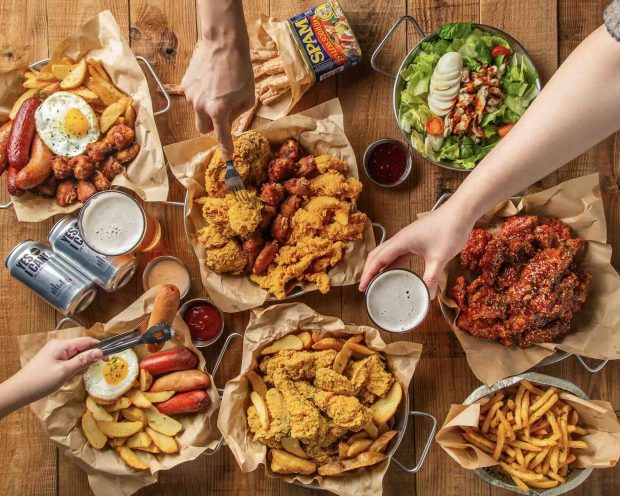Travelling exposes you to new experiences and adventures. It also takes you to other territories and dangers. When planning for a trip, it is essential to include the risk factors that come with it. Vaccines can help you adjust to any medical risks that you may come in contact within the area. Vaccination for South Africa is the first step to enjoying your vacation.
Getting a visa is essential when preparing for your safari. If you are planning a trip, consider making the visa application earlier to avoid the last-minute rush. South Africa is set to launch the electronic visa application. The visa application will simplify the whole process and make the process quicker. The electronic visa will still require you to provide information and documents like in the old visa application. You will not need to go to the embassy or consulate to verify everything and get your visa. With that, traveling to South Africa is set to become more relaxed.
Once you acquire the visa, you will have to get health advisory with recommended vaccines to be allowed to travel to South Africa. Vaccination is vital for one to travel safely. Are you wondering what prevention you need to go to Africa?
Vaccination
South Africa does not have must have vaccines. However, there are some vaccines that you will need. They are known as the recommended vaccinations.
There are routine vaccines that are common in SA. Diseases like Rubella, Measles, mumps, rubella, tetanus, diphtheria and whooping cough, and Polio. The vaccinations are available to babies, and some are re-administered over time.
Yellow Fever
Yellow fever endemic zones such as Africa and the Americas also have to supply proof of vaccination before they are allowed into the country. Visit your doctor earlier like six weeks and ask for a yellow fever vaccine if you come from the zones stated.
Hepatitis A and B
Travellers need vaccination from Hepatitis A, B, and typhoid. Hepatitis A is a requirement for tourists of a specific age group. People who want to have tattoos and piercings in SA or have sex with new partners must consider taking these vaccines.
Rabies
Other than that, you need a rabies vaccine. If you want to go to a game safari, a rabies vaccine is essential. Most Rabies deaths are prevalent in Asia and Africa. A dog bite or from another game animal bite may expose you to the disease.
Interacting with game animals is another predisposing factor. Game reserves in South Africa are in remote areas where you may not get assistance as fast as you should. You can avoid direct contact with animals which may bite or scratch you. Notably, wild cats and dogs are also rampant in some areas. Avoid petting wild animals, especially on your own as they may become hostile and inflict injuries.
Get the shot before your trip to avoid having to take one in a remote hospital. The older versions of the vaccine may cause a severe allergic reaction. Instead of waiting to make a vaccine at one of the local hospitals before your game drive or hike, do it with your GP.
Malaria
Some areas in SA are prone to the disease. Malaria causes fatalities in many remote regions of Africa. Your doctor will prescribe anti-malarial before you take your trip. It is also vital to precaution like a mosquito net and anti-mosquito repellants.
Meningitis
Due to the predisposing factors, it is advisable to take a vaccine against meningitis. The meningococcal vaccine is essential when travelling to rural areas. If you catch the disease, the chances of getting the right medical attention in time are minimal. On the other hand, the risk of contracting such a condition will affect your health and wellbeing.
Care tips
Wash your hands
To avoid diseases like cholera and typhoid, wash your hands regularly. Before you eat anything, make sure that your hands are clean. Other conditions like Hepatitis A are also passed on through human contact. Carry a hand sanitizer with you and avoid touching food or water with your dirty hands.
Water safety
Use clean, bottled water for drinking. It is easy to want to drink water from a river or a fall. More enticing are iced drinks which may contain contaminated water. Try using bottled water to brush your teeth if you feel like the water source for your hotel room is not safe to use.
Eating
Be cautious about what you put in your mouth. Some street food may look delicious and enticing. Wash fruits and vegetables before you consume them. Try local cuisine with caution as you might end up with diarrhea and disease like typhoid or worse cholera. Plan where to eat or carry snacks to avoid eating at any roadside stop as that exposes you to more germs.
Mosquito bites
Avoid mosquito bites. When out in the world, carry with you repellents and anti-mosquito spray.
Travel insurance
When travelling to any place, it is essential to obtain insurance. You will need cover when disaster strikes. In a case where you get a medical emergency, hospitals in SA only take money deposit. Your insurance comes in handy when you get an injury.
When taking insurance for travel, check against what they cover. If your insurance does not include some activities, you might exercise extra care when indulging. It is paramount for a tourist to look for an insurer that will cover you against all your interests. That will give you a chance to explore and have a fun trip.
Carry money with you when taking a trip to remote areas. Most places accept cash payments. South Africans communicate in English, which makes it easier to relate to visitors. Learn a few words in the local language to blend in and have an easy time while taking your trip.
Touring SA is pure when you are well prepared. Your health is paramount and is always a priority. Create a checklist of the things that you need to make your trip enjoyable and fun. Other than that, South Africa has cutting edge infrastructure, including hospitals which will cater to any emergencies in case there are any. Have a nice trip.








